General
Impact Stories: Meet Malvin Akwara, a Mastercard Foundation Scholars Program alumna, who is dedicated to promoting inclusive education
Published
4 months agoon
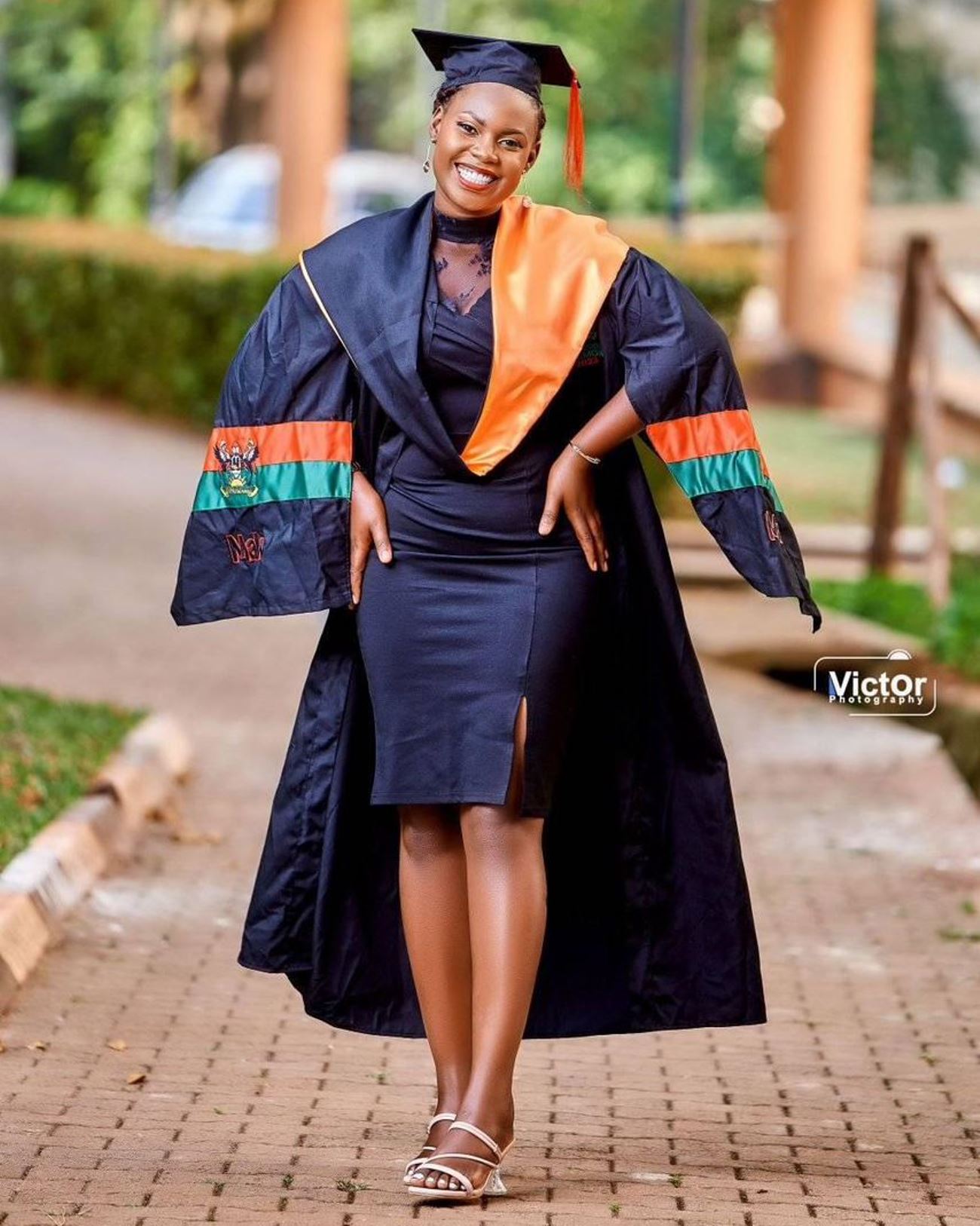
Malvin Akwara obtained a Bachelor of Arts degree in Education, specialising in English Language and Literature, from Makerere University in 2023, with support from the Mastercard Foundation. Since graduating, she has developed a passion for helping young people with disabilities access education at both secondary and university levels.
Who is Malvin Akwara
Malvin was born on 22nd November 1998 in Tororo, Eastern Uganda, into a family of six children (three girls and three boys). Shortly afterwards, the family moved to Kampala, where her father worked as an accountant. In 2009, her father lost his job, marking the beginning of a difficult period for the entire family. When her father who was the only breadwinner lost his job, the family returned to Tororo because they could no longer afford the high cost of living in the city.
Early Education
At the age of three, Malvin began her early childhood education at Clever Junior School in Kitintale, a Kampala suburb, where she attended Nursery School through Primary Three. Here, life was quite good, and she enjoyed being dropped off and picked up by her father, as was typical of most Kampala middle-class families. Unfortunately, it was not long before life took a different twist when her father lost his job and the family moved back to Tororo. In Tororo, she joined Morukebu Primary School, where she sat for her Primary Seven Leaving Examinations. Unlike her experience of a reasonably good life at school in Kampala, she had to walk long distances to and from school (14 kilometres each way) with her siblings, because her father could no longer afford to take them. The family had taken to subsistence farming to earn a living. The family worked together on the farm to grow food for home consumption and to sell some to pay school fees.
Pursuing Secondary Education
With her hard-earned 15 points from the Primary Leaving Examinations, Malvin embarked on her journey towards secondary education. She attended St. John’s Wakitaka in Jinja for her O-level from 2013 to 2016. However, in 2015, just before sitting her Uganda Certificate of Education (UCE) examinations, her father passed away due to peptic ulcers. His death devastated the already struggling family, and life became even harder. Left in the care of her single mother, with no steady source of income, Malvin and her siblings’ prospects looked bleak. Her father’s passing significantly affected her final results; she scored 39 points, which was poor compared to her earlier performance. With support from her paternal uncle, she later joined Budini Boarding Secondary School in Kaliro district, where she scored 14 points in History, Economics, Literature, and Divinity in 2018. By then, her other siblings had dropped out of school due to lack of fees, as their mother could not afford to keep them in school. To make matters worse, family disputes arose when her father’s relatives evicted her mother from the family land, leaving them homeless and with only enough land to grow food for their own consumption.
Pursuing University Education
With 14 points in her 2018 Uganda Advanced Certificate of Education (UACE) examinations, Malvin was hopeful about pursuing her university education with the support of her paternal uncle, who had helped her through A-level. Unfortunately, that hope was short-lived when her uncle shared the difficult news that he could not afford to send her to university because he needed to support his own children financially. The news was a significant setback to her dreams of being the first girl in her family to attend university. Unable to join a university at that time, Malvin embarked on a journey to find small jobs to support her mother and help the family.
It was during her job search that she came to Kampala to work for a family as a house help, mainly caring for her boss’ mother, who was in her sickbed at Kiruddu Hospital. During the three months she spent in the hospital as a caretaker, she learnt about the Mastercard Foundation Scholars Program at Makerere University through one of the family’s children, who was studying there.
Joining the Mastercard Foundation Scholars Program at Makerere University
Armed with the necessary information about the Mastercard Foundation Scholars Program at Makerere University, Malvin applied in 2019 and was delighted to be selected. Soon after, she was given the opportunity to pursue a Bachelor’s degree in Education, specialising in English Language and Literature. While at university, Malvin did not forget her family back home in Tororo. She allocated part of her stipend to support her mother and to ensure her siblings returned to school. During her second year at university in 2020, the global COVID-19 pandemic struck the world, bringing everything to a halt, including education at the university.
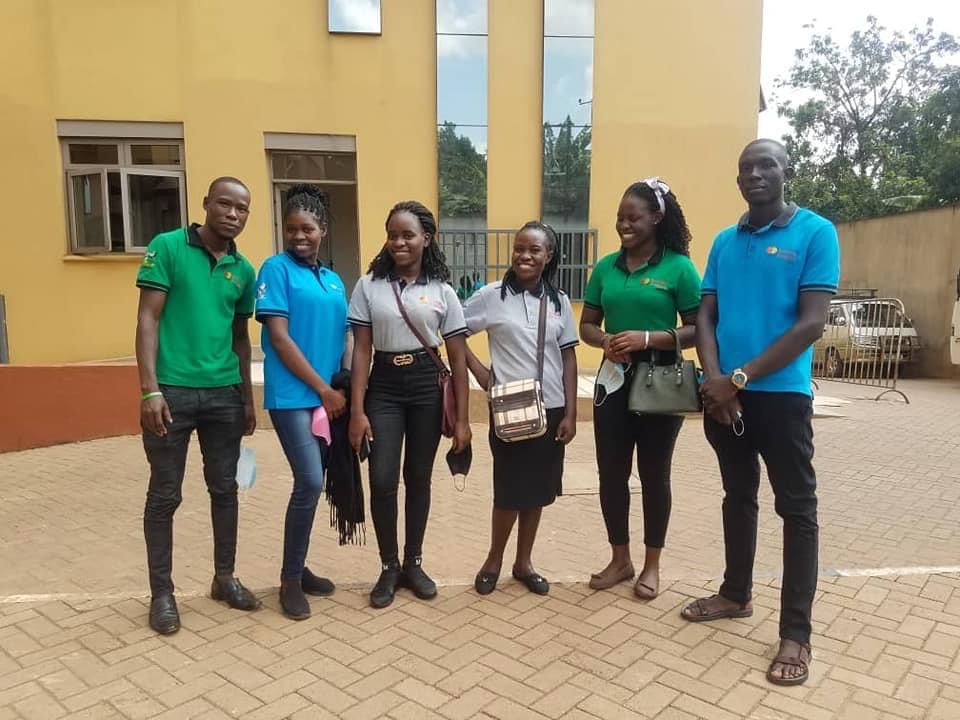
When Malvin was grounded at home, just as all her colleagues were, she didn’t let the misery that came with COVID-19 break her down; instead, she used it as an opportunity to support people in her community who were facing social and economic barriers to opportunities. Using her little savings, she started a piggery project to help single mothers in her community by giving them piglets to rear, multiply, and distribute to others experiencing similar challenges.
The piggery project helped several single mothers send their children to school. It is through this piggery project that Malvin came across Omukaga Samuel, a young person living with a disability who had been out of school because his parents could not afford to pay his school fees. With support from the piggery project, Malvin worked together with Samuel’s parents to help their son return to school. This experience with Omukaga Samuel ignited Malvin’s passion for supporting learners living with disabilities to access education.
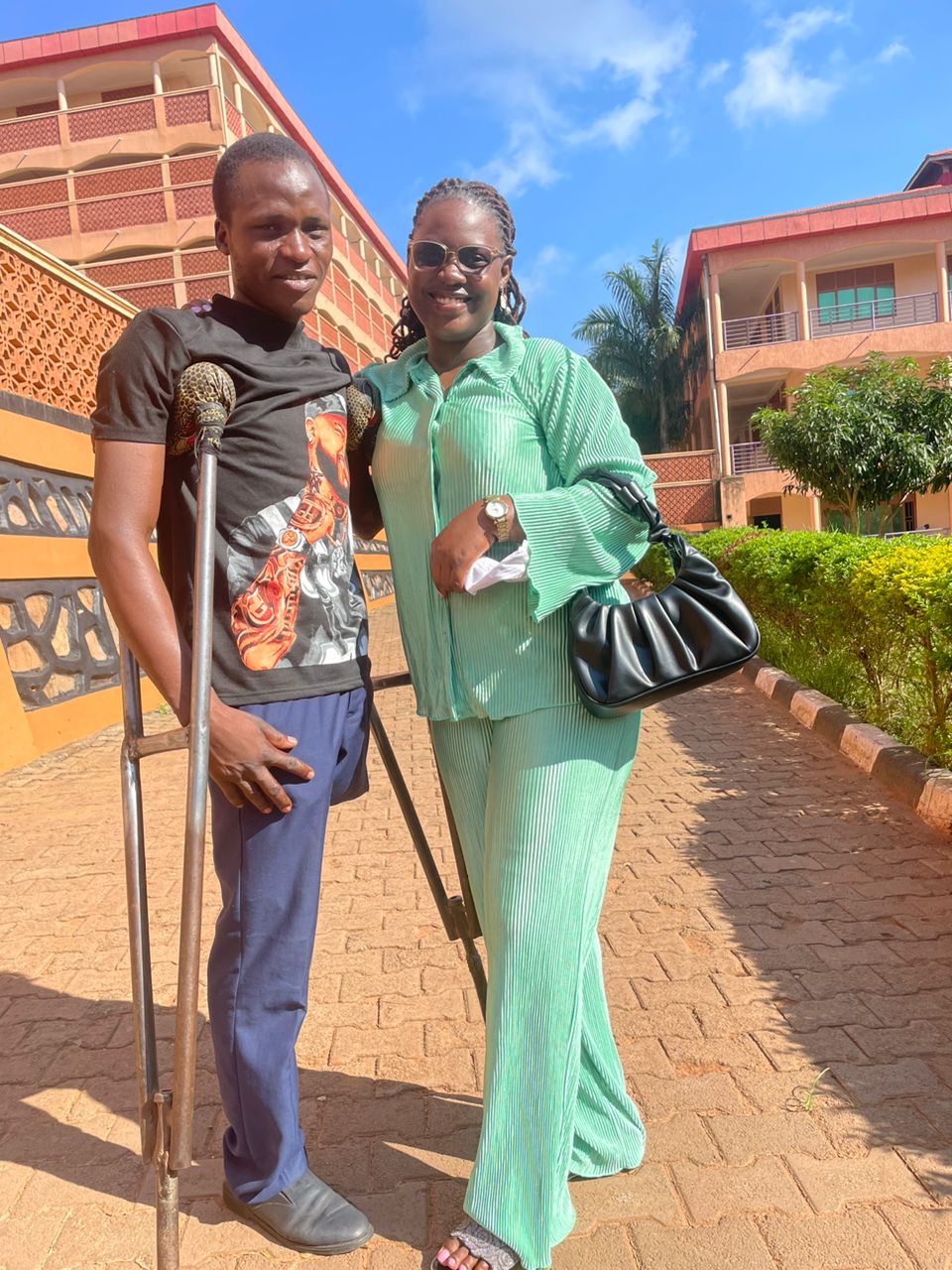
Life After Makerere University
Upon graduating in 2023, Malvin immediately found a position teaching English Language and Literature at Elite High School, one of Kampala’s top secondary schools. At this school, Malvin has grown into a professional teacher, career advisor, and mentor to many young people both within and outside the school.
Through mentorship, she has focused on supporting young people living with disabilities to return to school by helping them secure bursaries for secondary education and apply for scholarships to access university. For example, she assisted Omukaga Samuel in applying for the Mastercard Foundation Scholars Program at Makerere University, where he is currently pursuing a Bachelor’s degree in Adult and Community Education, as well as Patricia Namiwanda, who is presently studying for a Master’s degree in Human Rights at Makerere University, all thanks to the Mastercard Foundation Scholars Program.
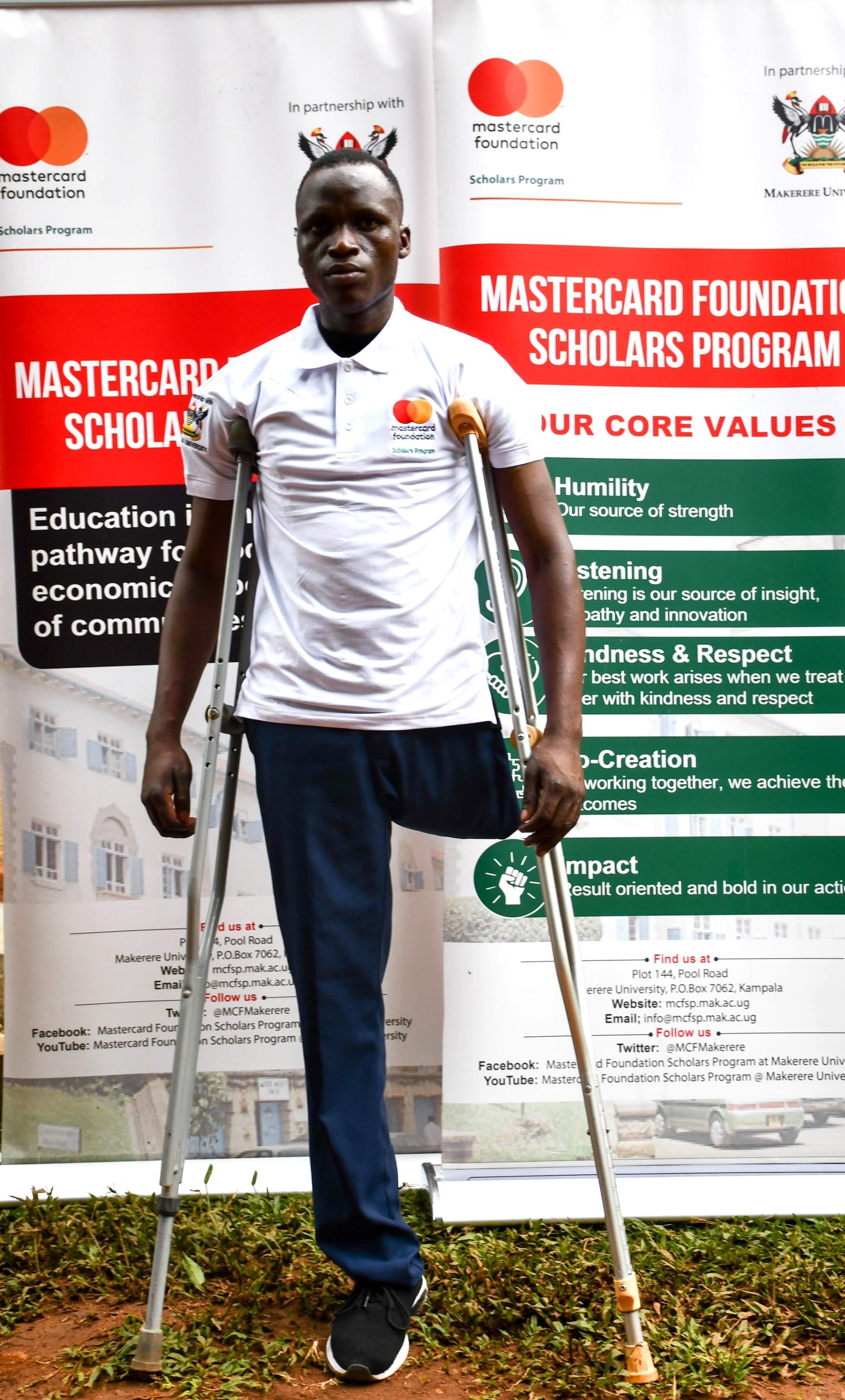
Malvin has also used her resources to build a decent house for her mother, where she now lives with her siblings in Manafwa District, Eastern Uganda, restoring hope after the family lost their home due to land disputes.
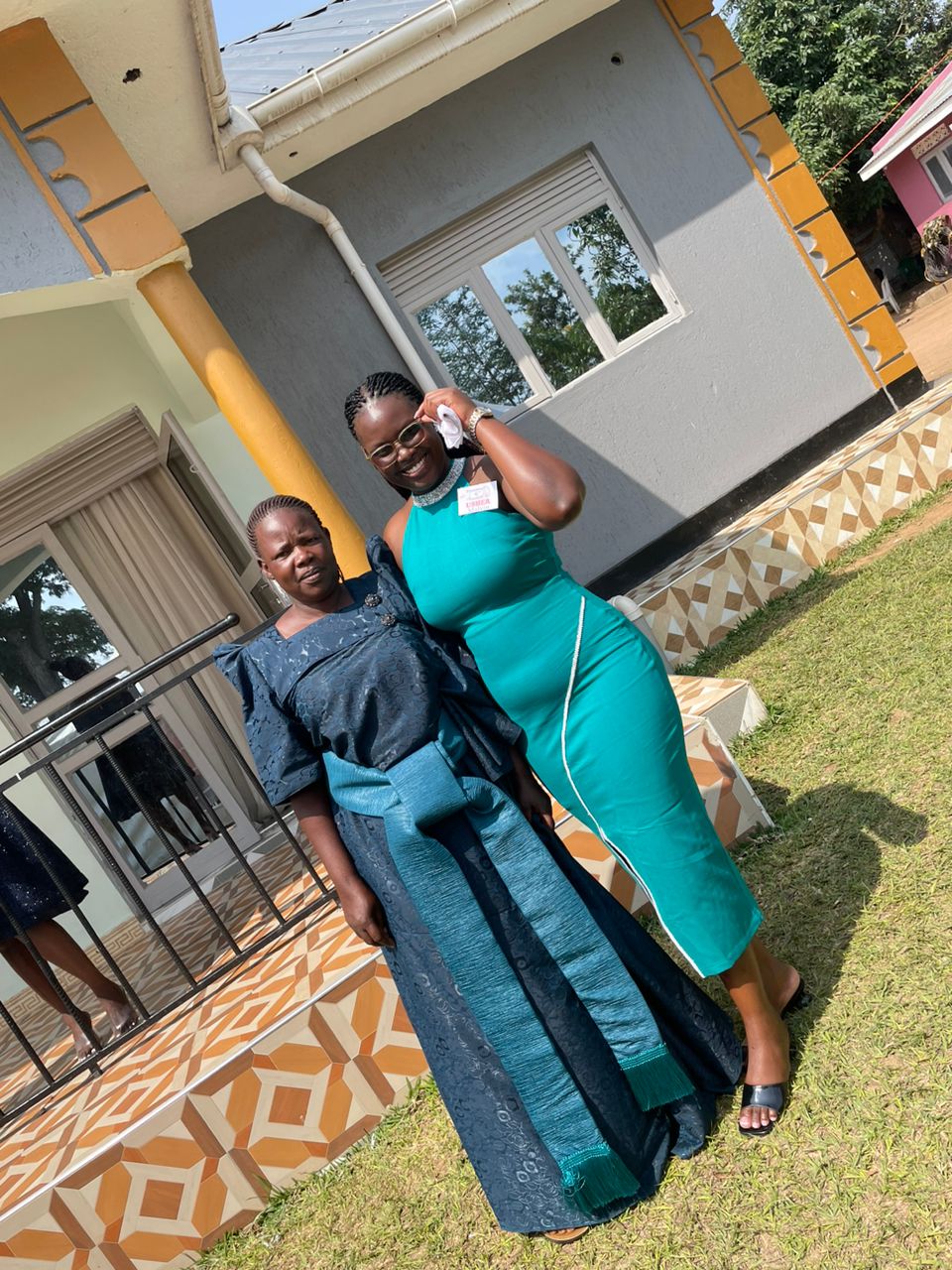
Impact on the Community
As the first-generation girl to achieve a university education, Malvin has inspired many young girls in her home district of Tororo to pursue further studies and has continued to support them through peer mentorship. Although she works and resides in Kampala, she travels home every Friday to meet and mentor young girls in secondary schools, encouraging them to stay in school and avoid early marriage, which remains a significant challenge for many young girls in Tororo and across Eastern Uganda.
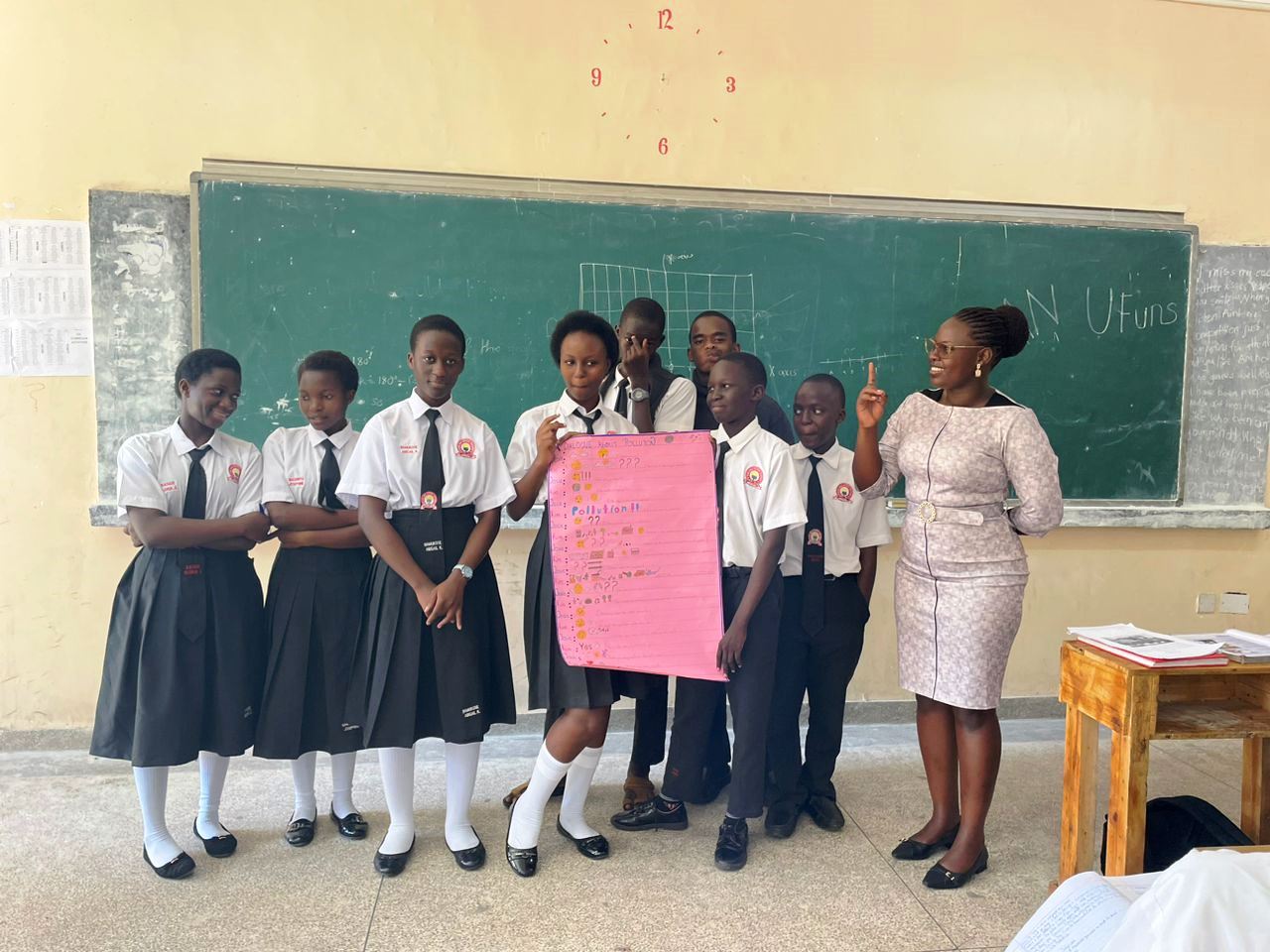
In addition, her piggery project has expanded across the entire district, improving the economic well-being of many participants in her community.
Looking into the Future
Malvin is optimistic about a bright future ahead, judging by the progress she has made in her life. She is currently pursuing her Master’s degree in Education with a specialization in Languages at Makerere University. She aspires to specialise in curriculum development and work with the National Curriculum Development Centre (NCDC) to design an inclusive curriculum that will help young people living with disabilities access meaningful education in Uganda. She also envisions building a school in her community that will specifically support young people living with disabilities to attain inclusive, quality education.
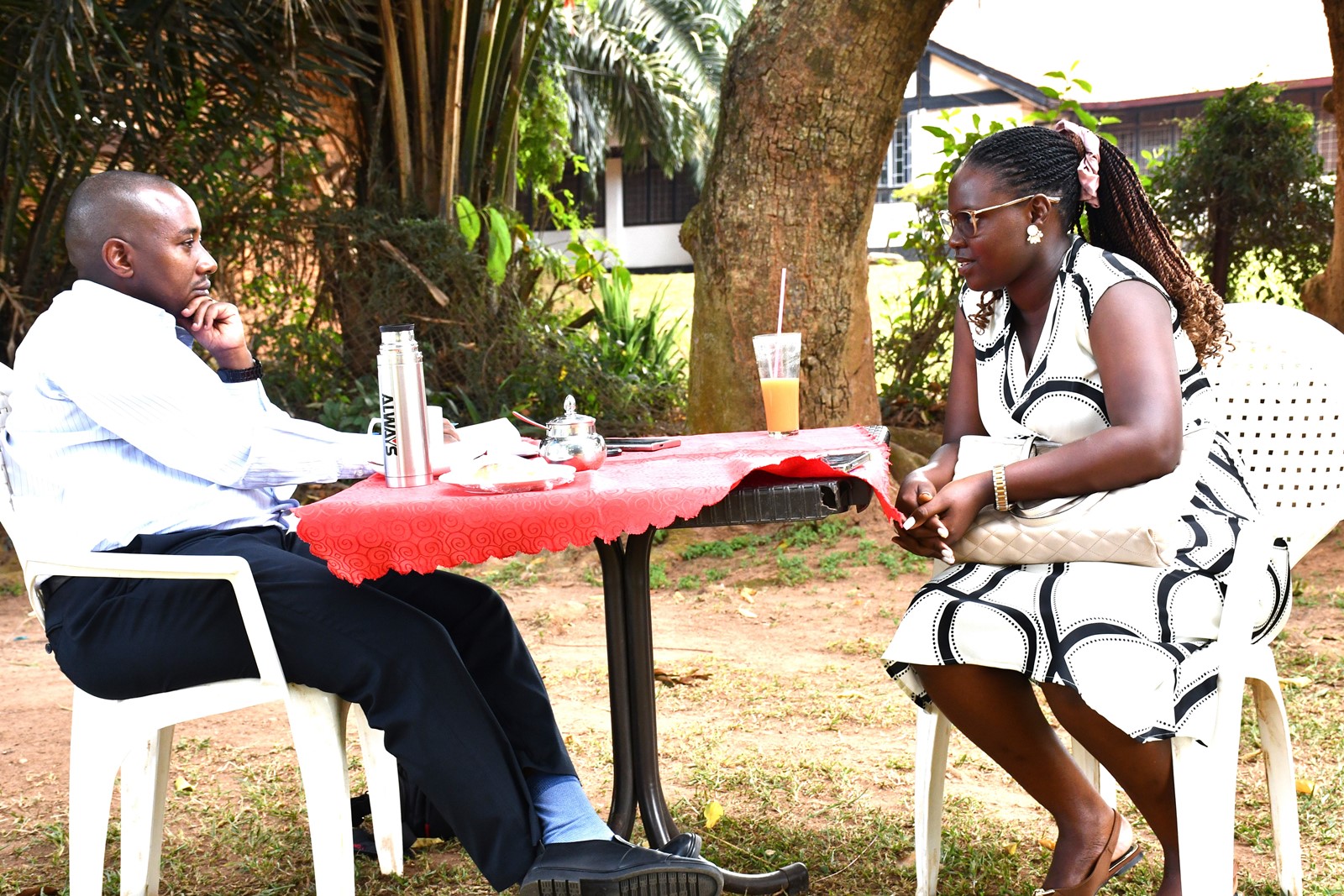
Message to Fellow Young Women
Malvin urges young women not to despair or give up in the face of difficult situations.
“I urge my fellow young women not to give up or despair when faced with difficult situations. They should always challenge themselves to emerge stronger from such circumstances.” Malvin shares.
Words of Gratitude
Malvin expressed gratitude to the Mastercard Foundation for the support that enabled her to attain a quality university education at Makerere University.
“If it were not for the Mastercard Foundation Scholars Program, I wouldn’t have attained a university education. I am therefore grateful and humbled for the opportunity extended to me and other Mastercard Foundation Scholars through this life-changing program.” Malvin remarked.
Malvin further urged the Mastercard Foundation Scholars Program team at Makerere University and other Mastercard Foundation partners to reach out to distant areas so that more young people facing social and economic barriers can also access university education.
Bernard Buteera is the Principal Communications Officer for Mastercard Foundation Scholars Program at Makerere University.
You may like
-


Mak Selected to Host Alliance for African Partnership Africa Office
-


Meet Najjuka Whitney, The Girl Who Missed Law and Found Her Voice
-


Makerere University School of Public Health Graduates First Cohort of Cost-Effectiveness Analysis Short Course
-
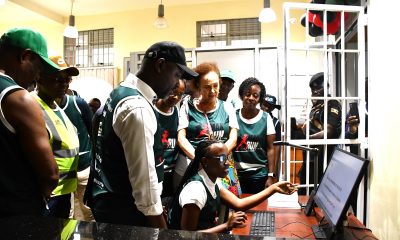

Students empowered to thrive through the Semester
-


Climate variability found to shape malaria trends in Yumbe District
-


Mak hosts First African Symposium on Natural Capital Accounting and Climate-Sensitive Macroeconomic Modelling
General
Mak Selected to Host Alliance for African Partnership Africa Office
Published
15 hours agoon
February 23, 2026
Makerere University has been selected to host the Africa Office of the Alliance for African Partnership (AAP). The significant milestone that underscores Makerere’s role in fostering research, innovation, and global collaborations across the continent was announced at a meeting of the University’s Central Management with an AAP delegation on 23rd February 2026.
Makerere’s selection was based on the University’s robust commitment, alignment with the AAP’s Strategic Plan, and proven ability to manage consortium activities. The AAP, which was initiated by Michigan State University (MSU) in collaboration with Ten African Universities and agricultural policy research networks in 2016, targets critical challenges in education, youth empowerment, health and nutrition, agri-food systems, science and technology, water, energy, environment, and culture and society.
Addressing the delegation consisting of AAP Co-Directors from MSU, Dr. Jose Jackson-Malete and Dr. Amy Jamison, accompanied by newly-appointed Director of the AAP Africa Office, Dr. Racheal Ddungu Mugabi and Ms. Clare Cheromoi, the Vice Chancellor, Prof. Barnabas Nawangwe who appreciated the choice of Makerere to host the Africa Office said:
“One of the greatest challenges facing African universities is PhD training, particularly supervisory capacity. Through partnerships such as the Alliance for African Partnership we can leverage international expertise to strengthen supervision—whether through training supervisors or through joint supervision arrangements.”
Prof. Nawangwe equally applauded joint initiatives such as the Grant Writing and Publication project, which gave rise to the establishment of a Writing Centre that he said can be used to build capacity in AAP member universities with Makerere as the hub. Officially launched on 21st March 2023, the project is living up to its expectation of becoming a springboard for strong postdoctoral collaborative research for both institutions and other US universities.
Dr. Titus Awokuse, Vice Provost and Dean for International Studies and Programs at Michigan State University (MSU) who attended virtually, reiterated that Makerere’s selection reflects its long-standing commitment to advancing African higher education, research excellence, and meaningful global collaboration.
Reflecting on the origins of the Alliance for African Partnerships (AAP), Dr. Awokuse explained that nearly a decade ago, MSU initiated a transformative conversation in Atlanta centered on the question: How should we partner differently? From this dialogue emerged AAP—an Africa-centered consortium that now brings together 12 institutions across Africa and the United States.

He emphasized that AAP is grounded in equity, mutual benefit, shared leadership, and deep respect for African priorities and expertise. Since its founding, MSU has served as convener and key supporter, working with member institutions to strengthen research collaboration, promote faculty and student engagement, and address shared development priorities.
Dr. Awokuse underscored that AAP’s success is the result of collective vision and commitment, not the efforts of a single institution. He paid tribute to Lilongwe University of Agriculture and Natural Resources for hosting the Africa Office in its early years and acknowledged the foundational leadership of the inaugural Africa Office Director.
He described the launch of the Africa Office at Makerere University as a significant milestone that reinforces Africa-led leadership, strengthens regional collaboration, and enhances responsiveness to emerging opportunities. MSU, he affirmed, remains fully committed to AAP and to working closely with Makerere and all consortium partners to expand collaborative research, nurture the next generation of scholars, and advance Africa-led solutions to global challenges.
The newly-appointed AAP Africa Office Director, Dr. Racheal Ddungu Mugabi is a member of faculty in the Department of Development Studies, Institute of Gender and Development Studies. Her work on intersectional inequalities in Uganda and other Global South regions uniquely positions her to drive collaborative research and partnerships at the Africa Office.
Initially founded by ten African Universities and MSU, AAP now comprises eleven African members including; the African Network of Agricultural Policy Institutes (ANAPRI)-Zambia, Egerton University-Kenya, Lilongwe University of Agriculture and Natural Resources (LUANAR)-Malawi, Makerere University-Uganda, United States International University-Africa-Kenya, Universite Cheikh Anta Diop-Senegal, Universite Yambo Ouologuem de Bamako-Mali, University of Botswana-Botswana, University of Dar es Salaam-Tanzania, University of Nigeria, Nsukka-Nigeria, and the latest, University of Pretoria-South Africa.
These Universites collaborate under Focal Points to advance policy-relevant research and sustainable development. Makerere University’s Focal Point is Prof. Robert Wamala, Director of Research, Innovations and Partnerships (DRIP).
Addressing the University Management, Dr. Jackson-Malete outlined the African Futures Research Leadership Program, which nurtures early career scholars through mentorship and skill-building as one of AAP’s flagship programs. She noted that the Program that prioritizes female participants or men committed to promoting women in higher education has for the first time during its fifth cohort admitted the first male, Dr. Alfadaniels Mabingo from the Department of Performing Arts and Film, Makerere University.
The AAP Africa Office at Makerere will coordinate activities, boost research collaboration, mobilize resources, and enhance global engagements for socio-economic transformation. This aligns with Makerere‘s broader goals of leveraging international expertise to build resilient institutions.
View more photos from the event: https://flic.kr/s/aHBqjCLjoA
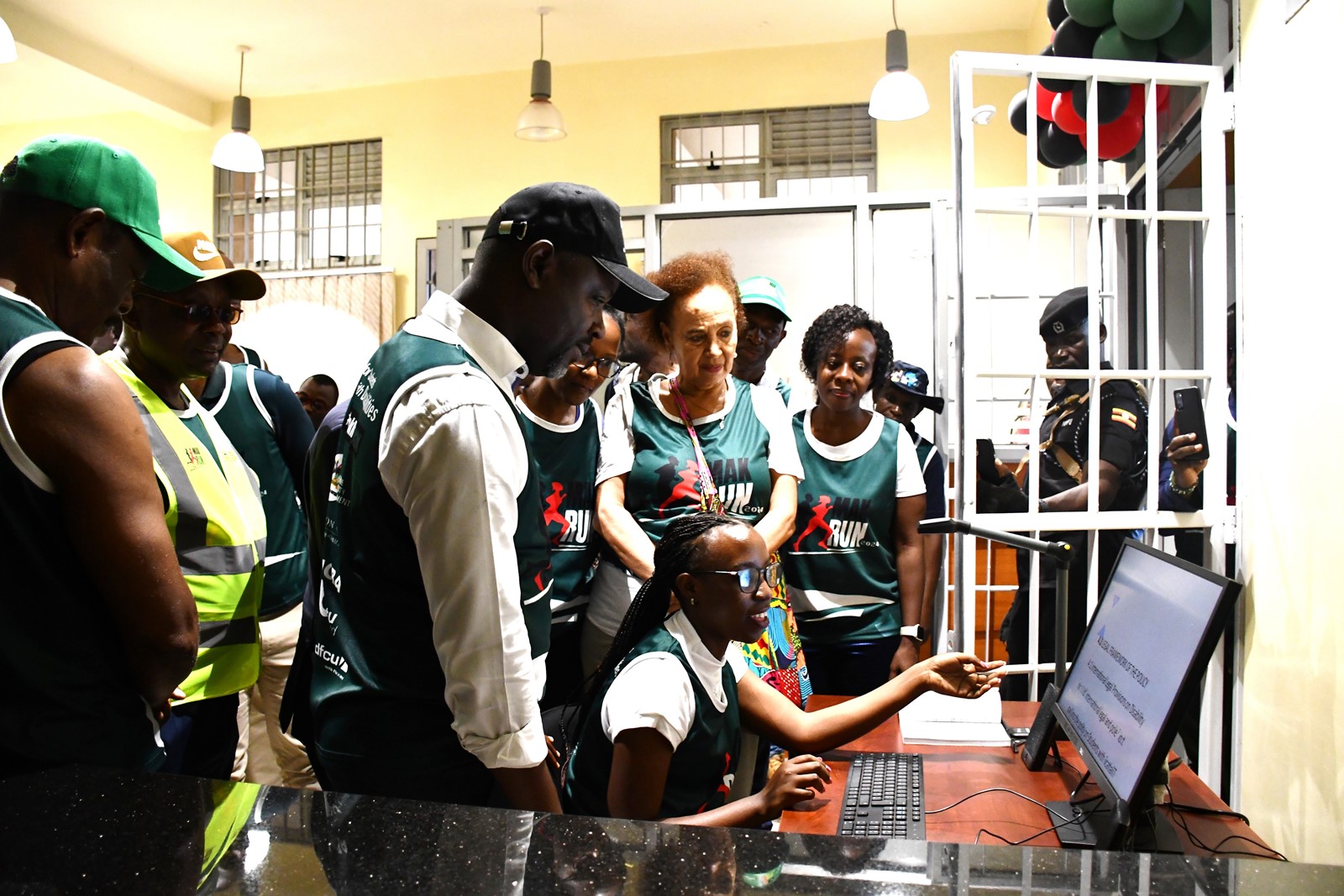
Students with disabilities at Makerere University have been requested to stop seeking for special attention and instead look for solutions and opportunities for personal growth.
This was during a mental wellness, inclusion and safeguarding session organized by the Dean of Students office and the Mastercard Foundation Scholars Program at Makerere University.
Addressing students on mental health and disability inclusion, Mr. Marvin Ggaliwango, a lecturer at the College of Computing and Information Sciences (CoCIS), noted that if the students stop complaining, they will become empowered to take charge of their own development, build resilience and engage confidently in both academic and social environments.
“Turn your lived experiences into tools for innovation. Stop complaining and start creating solutions for yourselves. You are the one living this life, and that gives you the authority to be an expert. When you develop a solution, it doesn’t just benefit you, it helps others too, by removing barriers,” Mr. Marvin Ggaliwango, said.
He encouraged students to see themselves not as victims of circumstance, but as active participants and co-creators of the inclusive environment they wish to experience.
“Learn how to communicate effectively and humbly. If you have a problem, express yourself clearly. Do not isolate yourself or feel resentful. You are not defined by disability, you may face disadvantages, but you still have ability,” he encouraged.
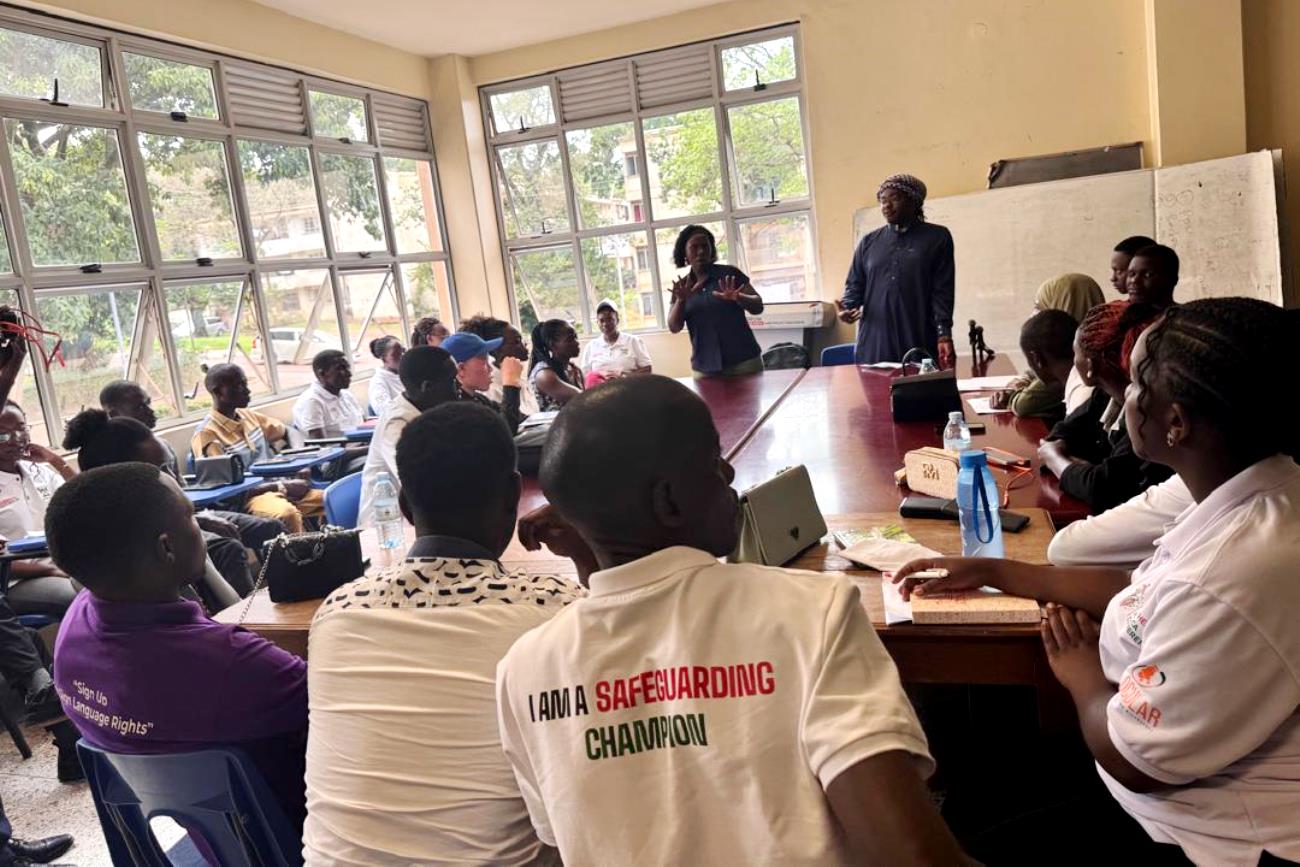
Throughout the session, students listened attentively as he emphasized the importance of self-awareness and personal responsibility, urging them to understand their strengths, acknowledge their limitations and take deliberate steps toward personal growth while contributing positively to the University community.
“We must enhance and ensure that our mental health is number one. Always choose yourself first. Choose what makes you happy and protect your peace. If you are at peace with yourself, your academics will improve. There is a strong link between mental wellness and academic success,” Mr. Ggaliwango, noted.
In his speech, Mr. Musa Mwambu, the Disability Inclusion Advisor at Light for the World Uganda, called upon the students with disabilities to enhance and ensure that their mental health is prioritized.
“As students living with disabilities, sometimes you over expect, because you have a disability you should be given, listened to and when people do not listen to you, you attribute it to your disability, get it from me, even those without disabilities are not listened too. Things are not happening to you because of your disability it is because of the world we live in. Everything that happens to you can happen to others,” Mr Mwambu, noted.
“Have fun with your life. Make yourself happy and be smart. Present yourself in public confidently wherever you go. The way you carry yourself can improve your mental health and how others perceive you,” Mr. Mwambu said.
He reminded the students that gaining admission to Makerere is itself a milestone.
“There are many people without disabilities who have never stepped at Makerere University. Find something that empowers you and hold on to it. You may have a physical impairment, but if you are brilliant in class, you can lead discussions and inspire others,” he added.

During the session, Dr. Rodney Rugyema, the Acting Principal Warden, welcomed the students back from the long holiday. He assured them that the University is committed to their safety and well-being while on campus.
Dr. Rugyema emphasized that the University has systems in place to protect students, both physically and psychologically and encouraged them to report any concerns promptly.
“When you are at the University, you are not on your own, we are always here for you. For us to engage you on mental wellness and inclusion, we want you to be in the right state of mind, whole and complete,” Dr Rugyema, said.
He added: “We are here to empower you and we are calling upon you not be a risk for yourself and always be able to detect risks that are likely to affect your mental health and works towards avoiding them and reporting them to ensure that the University manages them before they escalate into real harm whose impact is more serious than you can think,”
During the session, Ms. Diane Nabikolo Osiru highlighted the University’s broader commitment to safeguarding.
Safeguarding at Makerere University refers to measures put in place to promote safety and wellness of all students, staffs and other stakeholders.
“At Makerere University, safety is not a luxury for few. but it is a right for every student. As the semesters begins, we are urging you to learn how to identify signs of harm or abuses and report them to the appropriate safeguarding contact points,” Ms Nabikolo, said.
For support in case of any harm or abuse, International and Refugee Students, can access support through the Advancement and International Office, while Students with Disabilities, can utilize the Disability Support Center. Those with personal and emotional challenges, can visit the Counselling and Guidance Centre.
In his speech, Dr Joab Agaba, a Lecturer in the College of Computing and Information Sciences, guided students how to report risks and incidences to the MakSafeSpace, the e-reporting platform complimenting the other University traditional reporting channels.
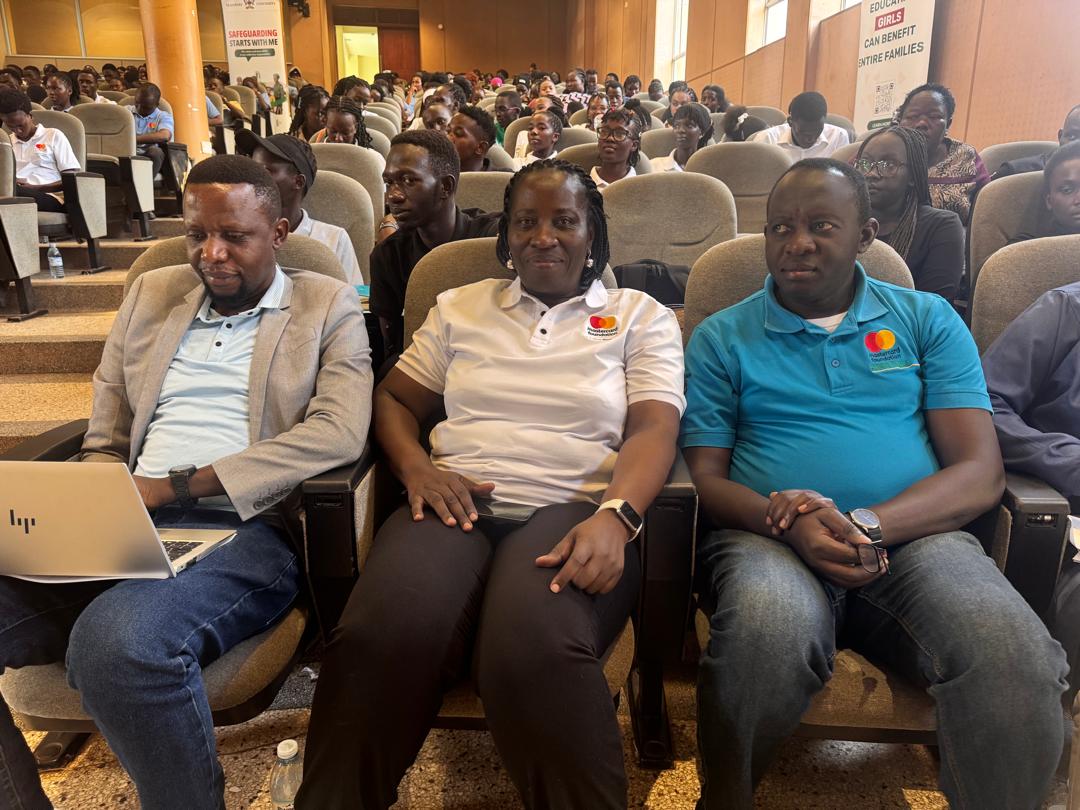
Mr. Henry Nsubuga, the Manager of the Counselling and Guidance Center, shared practical strategies for coping with stress effectively including time management, setting realistic goals, seeking support from peers or counsellors.
Students speak out
Shanitah Nahamya, 2nd year student of the Bachelor of Adult and Community Education
“I have learned how to respectfully and appropriately engage with students with disabilities. In the past, I often felt pity when I encountered them, but now I understand that what they need is not pity, it is respect, support, and equal opportunity.”
Guo Dorothy Geri, 1st year student of the Bachelor of Commerce
“I have learnt how to use inclusive language. Before offering help to a student with a disability, I will first ask them, because not all the time do they need our help. You might think someone wants to be helped to cross the road, yet they are waiting for someone.”
Valentines Doris Aduka, 1st Year student of the Bachelor of Biomedical Science
“I have been calling students with disabilities special names, thinking it was kind. But I have learned that they do not want to be treated differently or labeled in a special way. What they value most is being treated like everyone else, with respect, dignity, and fairness.”
General
Strengthening Global Partnerships to Advance Research, Innovation, and Graduate Training: Makerere University Hosts Delegation from the University of Warwick
Published
5 days agoon
February 19, 2026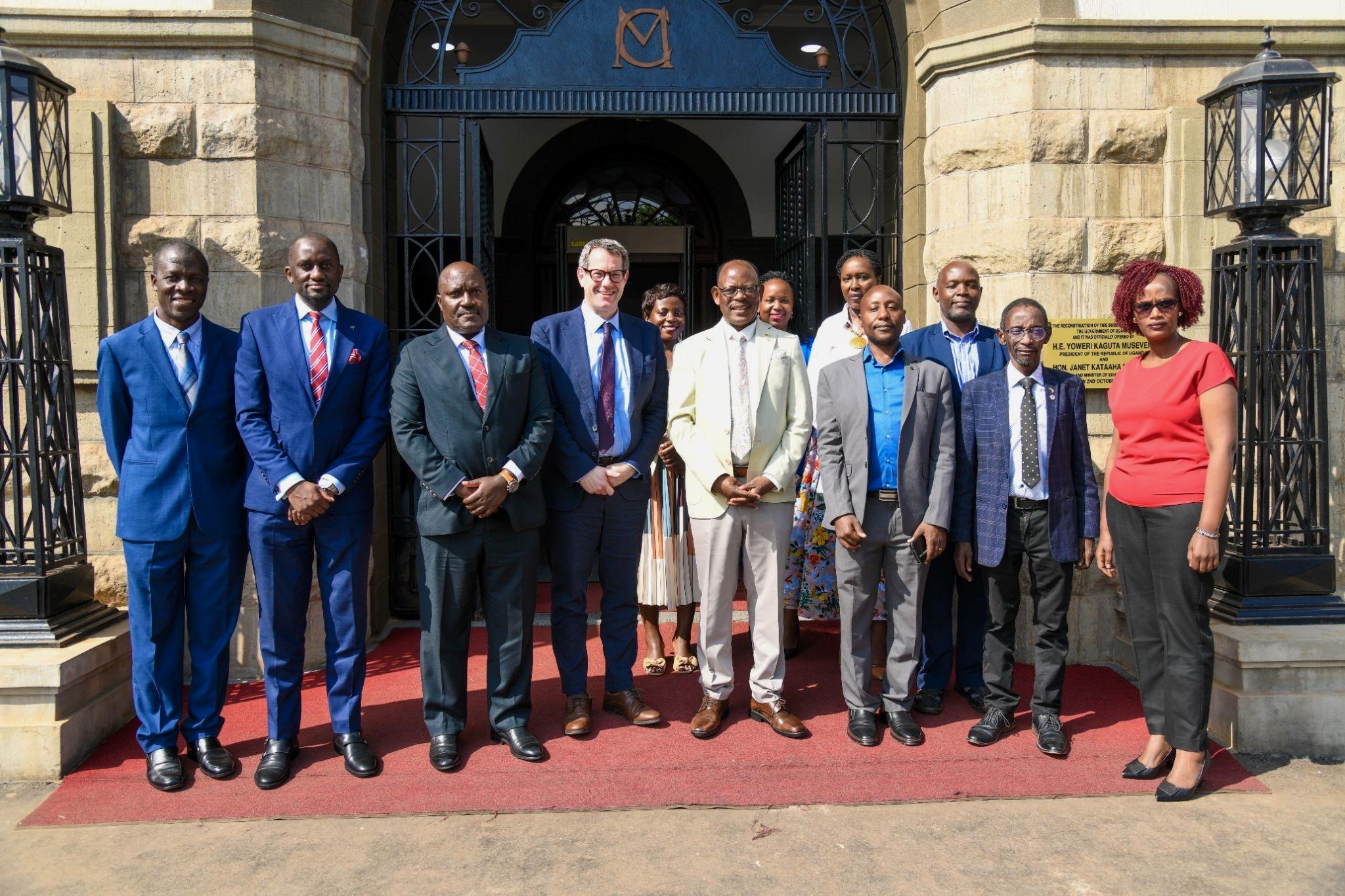
Makerere University continues to deepen its global engagement agenda through strategic partnerships that enhance research, innovation, and graduate training. On Friday, 13th February, 2025, during a recent engagement with a delegation from the University of Warwick (UK), university leaders, researchers, and administrators explored potential collaborations to address pressing development challenges and strengthen institutional capacity.
Expanding Collaboration in Research and Innovation
Welcoming the delegation, Prof. Fred Masagazi-Masaazi, Chairperson of the Makerere University Research and Innovations Fund (Mak-RIF) Grants Management Committee, emphasized the growing dialogue between Makerere University and the University of Warwick. He noted that ongoing discussions are focused on resource mobilization to support research and innovation, as well as building sustainable academic exchanges for both staff and students.
Dr. Roy Mayega, Mak-RIF Coordinator, together with Mrs. Phoebe Lutaaya Kamya, Deputy Coordinator, and members of the Mak-RIF team, highlighted the Fund’s role in catalyzing collaborative research and strengthening partnerships that translate research into societal impact.
Mr. Simon Kizito, Deputy University Secretary, outlined key areas identified for collaboration, including joint research and innovation initiatives, benchmarking visits across disciplines such as law, science, and ICT, and student exchanges designed to strengthen applied research skills. He also pointed to opportunities for training Makerere staff in specialized areas such as tropical diseases and innovation ecosystems, drawing lessons from Warwick’s strong linkages with industry partners located within its campus.
Makerere’s Strategic Priorities and Global Role
In his remarks, the Vice Chancellor underscored the longstanding relationship between Makerere University and the University of Warwick, dating back to the early 1980s, initially through staff training and more recently through collaborative research.
He highlighted Makerere’s historic contribution to leadership development across Africa and beyond, and the University’s continued growth following faculty rebuilding efforts in the 1980s, which have strengthened its research capacity. Today, Makerere has over 1,300 academic staff, more than 1,000 of whom hold PhDs, positioning the institution to play a leading role in knowledge production.
The Vice Chancellor also outlined major thematic areas where partnerships are critical:
- Climate change and food security: Researchers at the College of Agricultural and Environmental Sciences (CAES) are developing drought-resistant and high-yield seed varieties to address changing weather patterns and food insecurity.
- Public health and infectious diseases: Uganda faces frequent outbreaks of diseases such as Ebola and Marburg, and Makerere has built strong capacity in outbreak response and tropical medicine. The University’s medical school and the Infectious Diseases Institute (IDI) continue to play a pivotal role in research and treatment.
- Peace and conflict studies: Through initiatives such as the Rotary Peace Centre, Makerere contributes to training global leaders in conflict resolution.
- Climate-sensitive macroeconomic modelling: Makerere recently hosted a conference in collaboration with the Ministry of Finance, Planning and Economic Development to advocate for climate-responsive macroeconomic modelling and to plan for the establishment of a Centre of Excellence in this field.
- Innovation and technology: The University’s innovation ecosystem has produced notable outputs, including Africa’s first electric vehicle and ongoing work to expand incubation facilities to enable students to graduate with viable enterprises.
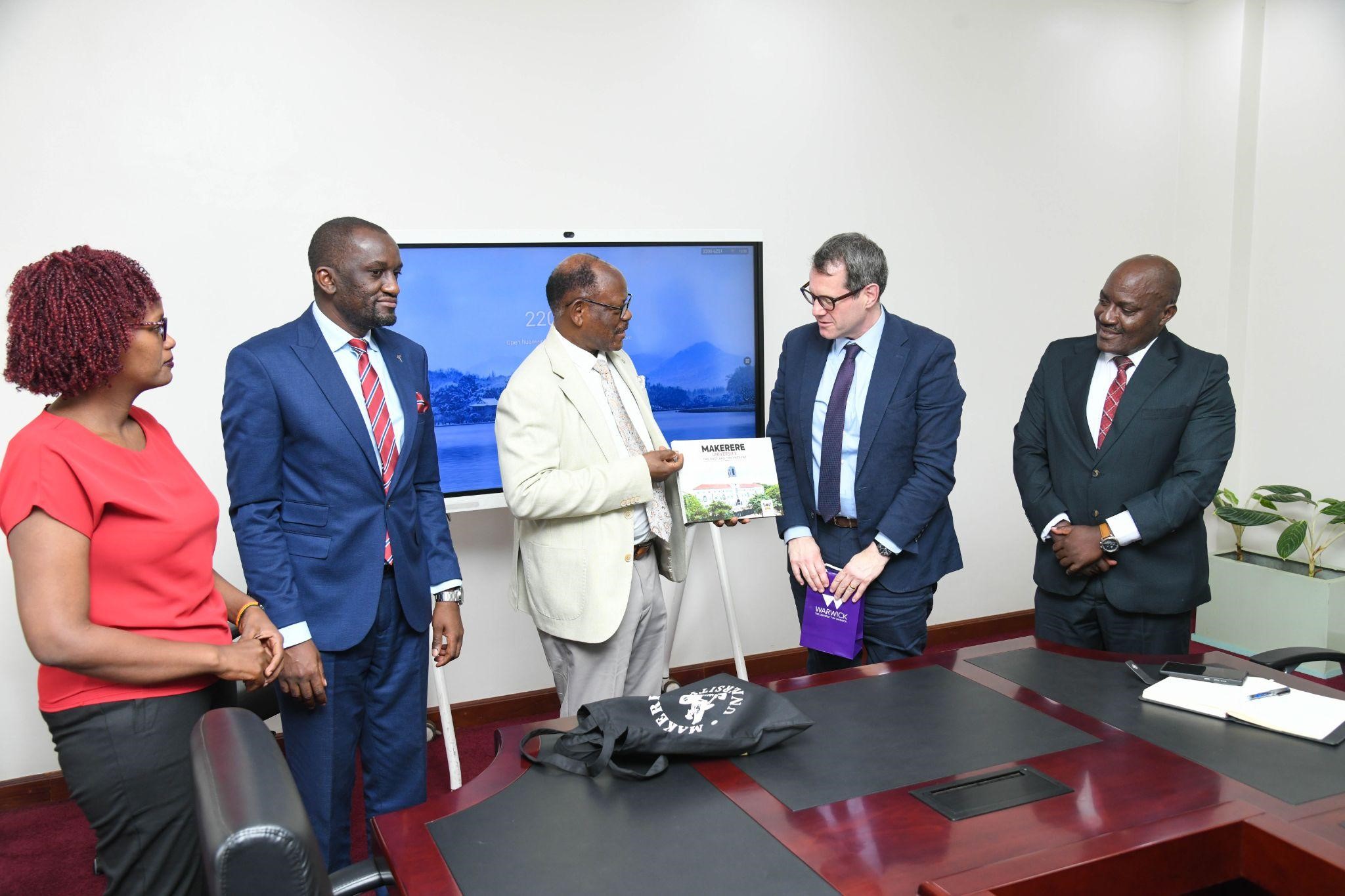
The Vice Chancellor emphasized that addressing youth unemployment remains a central priority, noting that innovation, entrepreneurship, and graduate training are essential to building stable societies.
He further stressed the importance of expanding graduate education. Africa currently produces a small proportion of global research output, and increasing PhD and Master’s training supported by international partnerships remains critical to accelerating knowledge production and development outcomes.
Internationalization and Shared Learning
Speaking on behalf of the University of Warwick, Professor Daniel Branch, Deputy Vice Chancellor, reflected on Warwick’s own institutional journey, noting that its growth has been driven by a strong focus on internationalization, innovation, and research. He expressed Warwick’s commitment to building productive partnerships with African universities, including Makerere, to advance joint research, training, and innovation.
Professor Branch also highlighted the importance of university-industry linkages, citing examples such as collaborations with major manufacturing firms that provide practical training opportunities and inform curriculum development.
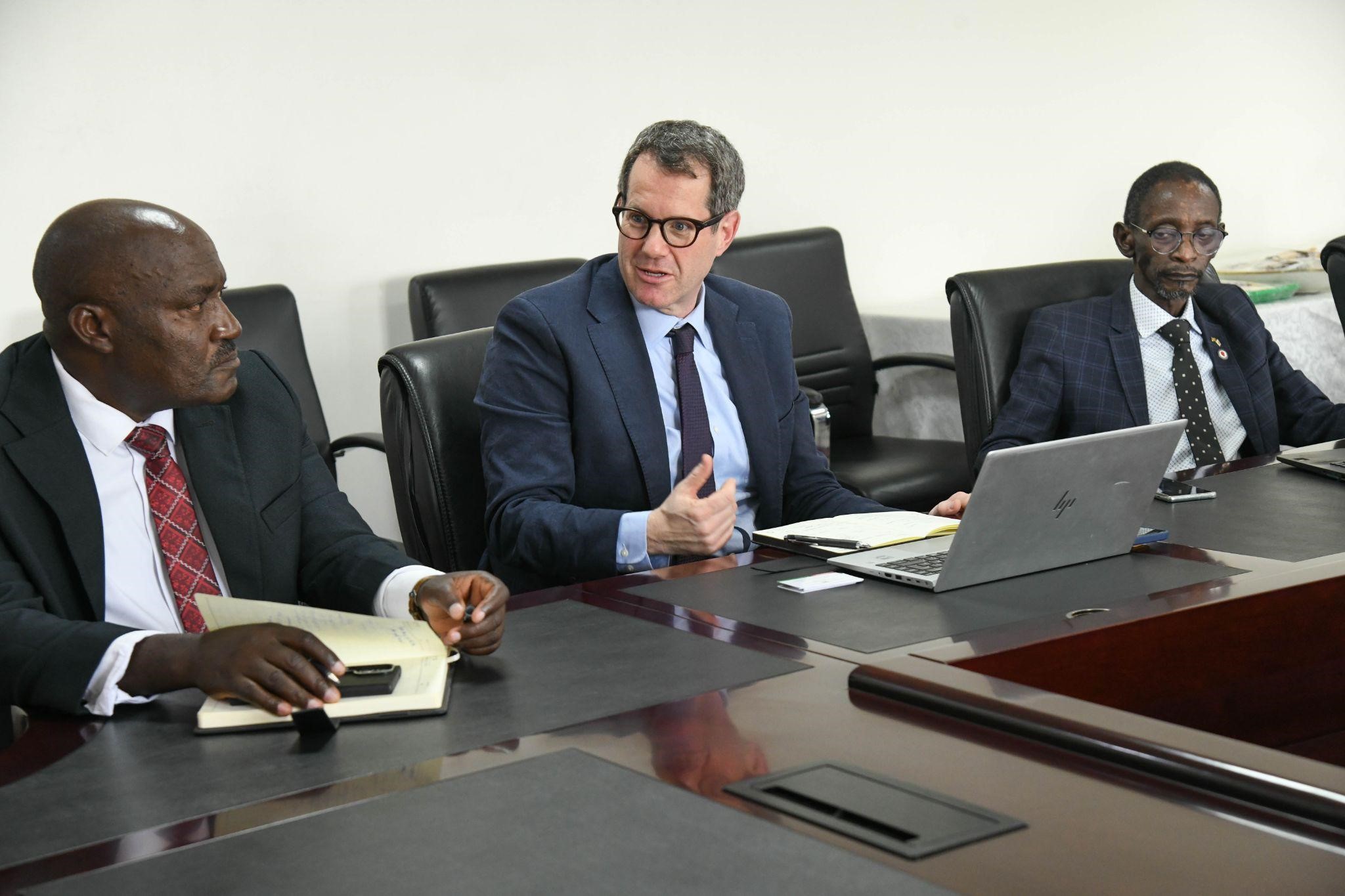
Showcasing Research and Innovation at CEDAT
A second session of the engagement was held at the College of Engineering, Design, Art and Technology (CEDAT), where academic leaders and researchers presented ongoing work across multiple disciplines.
Presentations included:
- Development of a solar water pump through reverse engineering (Dr. Edmund Tumusiime)
- Crane Cloud, a locally developed cloud-computing platform (team from the College of Computing and Information Sciences)
- Profiling gaseous emissions associated with burnt bricks (Dr. Nathan)
- Integration of centralized grid and decentralized renewable off-grid systems: a techno-economic analysis (Dr. Abubaker Waswa)
- Innovation and digitalization pathways for affordable housing in Sub-Saharan Africa (Prof. Stephen Mukiibi)
The session was attended by CEDAT leadership, including the Principal, Prof. Moses Musinguzi, as well as deans and heads of department from engineering, built environment, and industrial and fine arts. The day’s activities were concluded with a tour of Makerere University’s Innovation Hub.
The engagement reaffirmed Makerere University’s commitment to building strong, mutually beneficial partnerships that accelerate research, strengthen graduate training, and drive innovation. As global challenges such as climate change, public health threats, and youth unemployment intensify, collaboration among universities remains essential to developing scalable, evidence-based solutions.
Through partnerships such as the one Makerere University and the University of Warwick hope to activate through a Memorandum of Understanding in the near future, Makerere continues to position itself as a leading research-intensive university dedicated to transforming society through knowledge, innovation, and global cooperation.
Caroline Kainomugisha is the Communications Officer, Advancement Office, Makerere University.
Trending
-

 General2 weeks ago
General2 weeks agoAptitude Exam (Paper 1) Results for the Mature Age Entry Scheme 2026/2027
-

 Health5 days ago
Health5 days agoUganda has until 2030 to end Open Defecation as Ntaro’s PhD Examines Kabale’s Progress
-

 General6 days ago
General6 days agoMastercard Foundation Scholars embrace and honour their rich cultural diversity
-

 General2 weeks ago
General2 weeks agoFor Youth by Youth – Call for Second Cohort Applications
-

 Agriculture & Environment4 days ago
Agriculture & Environment4 days agoUganda Martyrs Namugongo Students Turn Organic Waste into Soap in an Innovative School Project on Sustainable Waste Management
